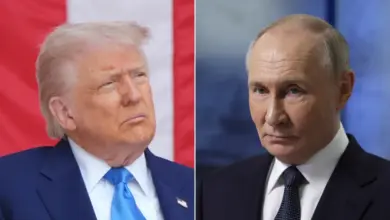The White House may consider a series of proposals to address political reforms in Egypt before the upcoming parliamentary and presidential elections, said US experts.
Experts in the bi-partisan Washington-based Egypt Working Group said they met with senior officials at the White House National Security Council (NSC) on Tuesday to discuss political reform in Egypt as well as the upcoming parliamentary and presidential elections.
The two parties also discussed Egyptian election implications for US policy.
“The meeting is significant and might indicate that the administration could mull changing policy on issues of democracy and human rights in Egypt,” said Andrew Albertson of the Project on Middle East Democracy.
Albertson, however, did not rule out the possibility that the meeting could be part of the administration’s plan to contain Republican pressure, following the party's sweeping performance in Tuesday's congressional midterm elections.
Republicans won more than 60 seats in the House of Representatives and six seats in the Senate. Democrats now hold 51 senatorial positions, substantially less than the 60 seat majority required to pass legislation.
Republicans have voiced concerns over Obama’s strategy in the Middle East for resorting to traditional US diplomacy that favors stability over political reform.
The high level meeting with the Egypt Working Group is the first since President Barack Obama assumed power in 2009.
Senior NSC officials attended the meeting including Senior Director for the Central Region Dennis Ross, Senior Director for Multilateral Affairs and Human Rights Samantha Power, Senior Director for Global Engagement Pradeep Ramamurthy, Senior Director for the Near East and North Africa Dan Shapiro, and Senior Director for Development and Democracy Gayle Smith.
"Today national security staff briefed the members of the working group on Egypt on the administration’s ongoing efforts to promote respect for human rights and a vibrant civil society, open political competition, and credible and transparent elections in Egypt, including a comprehensive set of actions that support these goals in Egypt," NSC Spokesman Mike Hammer told the Washington-based publication POLITICO. "The National Security staff also noted that the administration is continuing to press the Egyptians to open political competition and allow domestic and international monitors."
“Our impression is that the administration would privately tell their Egyptian counterparts that the [electoral] process should be fair," one attendee told Al-Masry Al-Youm on condition of anonymity. "And if the elections were rigged and violent, Obama could go public to raise the issue.”
During the one-hour meeting, the group told NSC officials the Mubarak regime has either rejected or ignored all diplomatic efforts made by the Obama administration to persuade the Egyptian government to abolish the 30-year-old Emergency Law and to accept international monitoring of elections, the participants said.
Attendees also suggested that putting pressure on the Egyptian regime to accept international monitoring of the presidential elections slated for September 2011 might be achievable, despite the fact that Cairo has explicitly rejected the idea for the 28 November parliamentary elections.
“I am encouraged by the meeting, but I wish it could have taken place six months earlier,” Robert Kagan, from the Brookings Institute, told POLITICO.
“By the time we get started and get all engines rolling, we will have missed this [November parliamentary] elections," he added. "But the big game is the presidential elections and with that caveat, I am very heartened.”
Egyptian rights groups have, over the past period, criticized the Obama Administration for encouraging stability at the expense of democratic reforms in Egypt, often citing recent a decision by the United States Agency for International Development (USAID) to provide funds for only registered NGOs, a condition that aggressively affects the more critical organizations.
POLITICO also cited Kagan as saying that "stability in Egypt is an illusion, and we have to get on the right side of this thing."
Political analysts say that Washington has abolished its policy of supporting democracy in the Middle East since the second term of Former President George W. Bush following the strong performances for Islamist groups in Egyptian and Palestinian parliamentary elections.
Experts also cite Washington's need for a powerful Egyptian mediation role in the Palestinian-Israeli peace talks as another factor that has led the US to reduce pressure on Egypt.
Other experts believe the current impasse in peace talks may prompt the US to change its strategy in the future.
"Any change in US policy towards Egypt may be partially prompted by the peace process stagnation," Albertson said.
The US Senate is currently debating a resolution to push for more democratic reforms in Egypt. The resolution calls for abolishing the 30-year-old Emergency Law.
It also calls on the government to “take all steps necessary to ensure that forthcoming elections are free, fair, transparent, and credible, including granting independent international and domestic electoral observers unrestricted access to polling and counting stations and instructing security forces not to engage in violence.”
Along with Albertson, and Kagan, participating members of the Egypt Working Group included Elliott Abrams of the Council on Foreign Relations, Daniel Calingaert of the Freedom House, Scott Carpenter of Washington Institute for Near East Policy, Brian Katulis of the Center for American Progress, Tom Malinowski of the Human Rights Watch), and Robert Satloff of the Washington Institute for Near East Policy.




